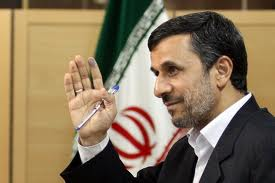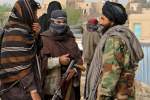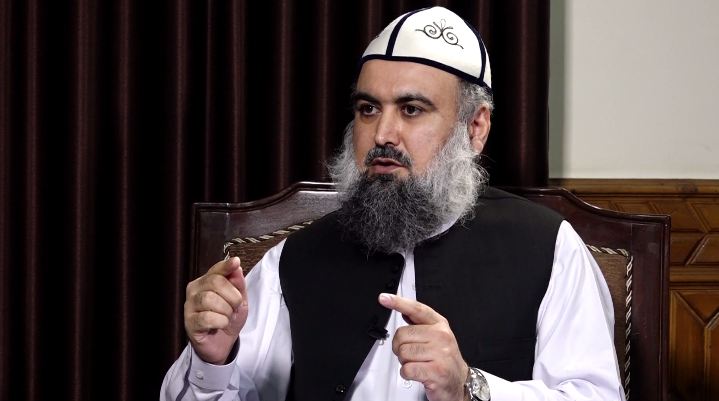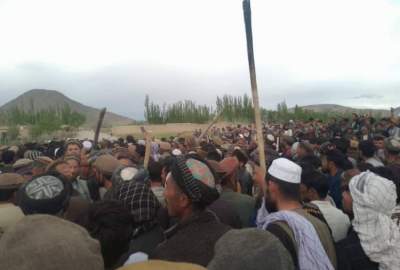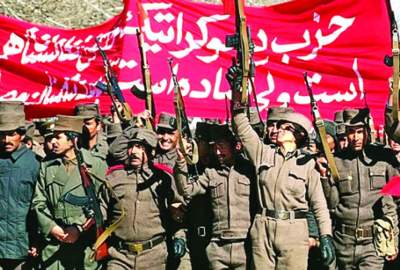The NATO summit's plan to "responsibly wind down" the Afghan war is not entirely in the hands of President Barack Obama and his fellow world leaders.
The carefully orchestrated exit strategy could come unhinged if the resilient Taliban stage a major comeback or Afghanistan's neighbors interfere with the process to bolster their position in a weak country soon to be without thousands of international combat troops.
In short, the Taliban, Pakistan and Iran still get a vote.
The Taliban, who continue to carry out attacks across the country and have shown little interest in negotiating peace with the Afghan government, described the NATO summit as a "show" with "no result."
"Nobody can trust their statements and lies," Taliban spokesman Zabiullah Mujahid said in an e-mail to the media on Tuesday, a day after the two-day summit closed in Chicago. "They are claiming that everything is fine in Afghanistan, which is far from the reality."
At the summit, the U.S.-led NATO coalition finalized its plan for Afghan forces to take the lead in providing security in the middle of next year. Foreign troops will move into backup support and training roles, then completely end their combat mission at the close of 2014. The goal is to pull back gradually to avoid a repeat of the civil war that followed the Soviet exit two decades ago — chaos that paved the way for the rise of al-Qaida and the Taliban.
Ivo Daalder, the U.S. permanent representative to NATO, said Tuesday on a conference call with reporters that the U.S. has been paying close attention to the role of Iran and particularly Pakistan in the transition strategy for Afghanistan.
"We are in a very active and in-depth set of dialogues with Pakistan to find ways in which we can cooperate to deal with the problems that exist in order to make sure that our strategy in Afghanistan will succeed," Daalder said. "That's why we have and will continue to find ways to cooperate on dealing with the terrorists."
Pakistan has said repeatedly that it wants a stable Afghanistan, and the U.S. has given that country billions of dollars in aid over the past decade to enlist its support in fighting militants. But U.S. officials also have accused Pakistan of being a fickle ally and even supporting Taliban insurgents fighting the American troops in Afghanistan. Pakistan has denied this allegation.
Last year, then-Joint Chiefs of Staff Chairman Adm. Mike Mullen said the Haqqani network, which is affiliated with the Taliban and al-Qaida, "acts as a veritable arm" of Pakistan's intelligence agency. Mullen accused the network last year of staging an attack against the U.S. Embassy and NATO headquarters in Kabul and being behind a truck bombing that wounded 77 American soldiers. He claimed Pakistan's spy agency helped the group.
Still, both Afghanistan and the U.S. need Pakistan's help to negotiate a peace agreement with the Taliban.
"It is in Pakistan's interest to work with us and the world community to ensure that they themselves are not consumed by extremism that is in their midst," Obama said in Chicago.
Afghan President Hamid Karzai met with Pakistani President Asif Ali Zardari on the sidelines of the summit. The main subject was Pakistan's role in the peace process. Karzai's office said in a statement that Zardari invited the head of the Afghan peace process to Pakistan to discuss the issue.
Pakistan is not a NATO member but was invited to the summit because of its influence in Afghanistan and its role until last year as the major supply route to landlocked NATO forces there. Pakistan closed those routes after a U.S. attack on the Pakistani side of the border killed 24 Pakistani soldiers in November. The routes remain closed because of a dispute over how much the U.S. will pay Pakistan to allow each truck to drive across its territory.
Iran also has the ability to complicate NATO's plans. Iran does not like the U.S. military footprint on its eastern border and will be closely watching negotiations on a U.S.-Afghan security agreement that will define the size and parameters of an American military presence in Afghanistan in the years to come.
Although the Iranians are cozier with Afghanistan's ethnic Hazara than with the majority Pashtuns who fill the ranks of the Taliban, NATO has accused Iran of providing the Taliban with weapons used against coalition forces.
Last year, NATO forces seized 48 Iranian-made rockets that officials said were intended to aid the Taliban. NATO officials said the shipment was evidence of a serious escalation in Iran's state support of the Taliban — an allegation Tehran denied. Western officials accuse Iran of conducting a proxy war against the U.S., which is in a standoff with Tehran over its nuclear program.
For now, Afghans are taking a wait-and-see approach to the summit's upbeat assessment of their future.
"We have witnessed a lot of international conferences on Afghanistan — conference after conference after conference," said Mohammad Qassim Zazai, a businessman from Paktia province who is living in Kabul. "The people say 'Let's see what's going to happen on the ground.'"
Abdul Khaliq Bala Karzai, a parliament member, said he was pleased that world leaders expressed their commitment to Afghanistan even as they are pulling out their troops.
"I was watching on TV and they said they are going to protect Afghanistan and the Afghan people. Security is like water — very vital," said the lawmaker from Kandahar province, the birthplace of the insurgency.
The world leaders now need to pressure Iran and Pakistan to cooperate, not interfere, in Afghanistan, he said.
"For the time being, the Taliban are not able to fight on the ground against the Afghan and foreign troops. They are able only to launch guerrilla attacks, plant mines and carry out suicide attacks," he said. "When the foreign troops leave, the Taliban will get stronger, especially if these two countries support them — give them weapons and sanctuary, which is going on now."
Mawlana Farid, a political analyst in Kabul, said he also was heartened to hear the international community's strong support going forward.(Xinhua)
"The world leaders in Chicago announced their unity in protecting Afghanistan, but we still have concerns about our neighbors — Pakistan and Iran," he said.
Even in front of 60 world leaders, Pakistan was not willing to open up its borders to allow NATO convoys to move through its territory, he lamented.
"These convoys are the ones being used to help fight the terrorism. Pakistan is not ready to cooperate," Farid said. "Pakistan needs to give their word to the international community that they will not support insurgents or terrorism. If not, the situation could get worse." (Xinhua)
The carefully orchestrated exit strategy could come unhinged if the resilient Taliban stage a major comeback or Afghanistan's neighbors interfere with the process to bolster their position in a weak country soon to be without thousands of international combat troops.
In short, the Taliban, Pakistan and Iran still get a vote.
The Taliban, who continue to carry out attacks across the country and have shown little interest in negotiating peace with the Afghan government, described the NATO summit as a "show" with "no result."
"Nobody can trust their statements and lies," Taliban spokesman Zabiullah Mujahid said in an e-mail to the media on Tuesday, a day after the two-day summit closed in Chicago. "They are claiming that everything is fine in Afghanistan, which is far from the reality."
At the summit, the U.S.-led NATO coalition finalized its plan for Afghan forces to take the lead in providing security in the middle of next year. Foreign troops will move into backup support and training roles, then completely end their combat mission at the close of 2014. The goal is to pull back gradually to avoid a repeat of the civil war that followed the Soviet exit two decades ago — chaos that paved the way for the rise of al-Qaida and the Taliban.
Ivo Daalder, the U.S. permanent representative to NATO, said Tuesday on a conference call with reporters that the U.S. has been paying close attention to the role of Iran and particularly Pakistan in the transition strategy for Afghanistan.
"We are in a very active and in-depth set of dialogues with Pakistan to find ways in which we can cooperate to deal with the problems that exist in order to make sure that our strategy in Afghanistan will succeed," Daalder said. "That's why we have and will continue to find ways to cooperate on dealing with the terrorists."
Pakistan has said repeatedly that it wants a stable Afghanistan, and the U.S. has given that country billions of dollars in aid over the past decade to enlist its support in fighting militants. But U.S. officials also have accused Pakistan of being a fickle ally and even supporting Taliban insurgents fighting the American troops in Afghanistan. Pakistan has denied this allegation.
Last year, then-Joint Chiefs of Staff Chairman Adm. Mike Mullen said the Haqqani network, which is affiliated with the Taliban and al-Qaida, "acts as a veritable arm" of Pakistan's intelligence agency. Mullen accused the network last year of staging an attack against the U.S. Embassy and NATO headquarters in Kabul and being behind a truck bombing that wounded 77 American soldiers. He claimed Pakistan's spy agency helped the group.
Still, both Afghanistan and the U.S. need Pakistan's help to negotiate a peace agreement with the Taliban.
"It is in Pakistan's interest to work with us and the world community to ensure that they themselves are not consumed by extremism that is in their midst," Obama said in Chicago.
Afghan President Hamid Karzai met with Pakistani President Asif Ali Zardari on the sidelines of the summit. The main subject was Pakistan's role in the peace process. Karzai's office said in a statement that Zardari invited the head of the Afghan peace process to Pakistan to discuss the issue.
Pakistan is not a NATO member but was invited to the summit because of its influence in Afghanistan and its role until last year as the major supply route to landlocked NATO forces there. Pakistan closed those routes after a U.S. attack on the Pakistani side of the border killed 24 Pakistani soldiers in November. The routes remain closed because of a dispute over how much the U.S. will pay Pakistan to allow each truck to drive across its territory.
Iran also has the ability to complicate NATO's plans. Iran does not like the U.S. military footprint on its eastern border and will be closely watching negotiations on a U.S.-Afghan security agreement that will define the size and parameters of an American military presence in Afghanistan in the years to come.
Although the Iranians are cozier with Afghanistan's ethnic Hazara than with the majority Pashtuns who fill the ranks of the Taliban, NATO has accused Iran of providing the Taliban with weapons used against coalition forces.
Last year, NATO forces seized 48 Iranian-made rockets that officials said were intended to aid the Taliban. NATO officials said the shipment was evidence of a serious escalation in Iran's state support of the Taliban — an allegation Tehran denied. Western officials accuse Iran of conducting a proxy war against the U.S., which is in a standoff with Tehran over its nuclear program.
For now, Afghans are taking a wait-and-see approach to the summit's upbeat assessment of their future.
"We have witnessed a lot of international conferences on Afghanistan — conference after conference after conference," said Mohammad Qassim Zazai, a businessman from Paktia province who is living in Kabul. "The people say 'Let's see what's going to happen on the ground.'"
Abdul Khaliq Bala Karzai, a parliament member, said he was pleased that world leaders expressed their commitment to Afghanistan even as they are pulling out their troops.
"I was watching on TV and they said they are going to protect Afghanistan and the Afghan people. Security is like water — very vital," said the lawmaker from Kandahar province, the birthplace of the insurgency.
The world leaders now need to pressure Iran and Pakistan to cooperate, not interfere, in Afghanistan, he said.
"For the time being, the Taliban are not able to fight on the ground against the Afghan and foreign troops. They are able only to launch guerrilla attacks, plant mines and carry out suicide attacks," he said. "When the foreign troops leave, the Taliban will get stronger, especially if these two countries support them — give them weapons and sanctuary, which is going on now."
Mawlana Farid, a political analyst in Kabul, said he also was heartened to hear the international community's strong support going forward.(Xinhua)
"The world leaders in Chicago announced their unity in protecting Afghanistan, but we still have concerns about our neighbors — Pakistan and Iran," he said.
Even in front of 60 world leaders, Pakistan was not willing to open up its borders to allow NATO convoys to move through its territory, he lamented.
"These convoys are the ones being used to help fight the terrorism. Pakistan is not ready to cooperate," Farid said. "Pakistan needs to give their word to the international community that they will not support insurgents or terrorism. If not, the situation could get worse." (Xinhua)
Source : Afghan Voice Agency (AVA), International Service
